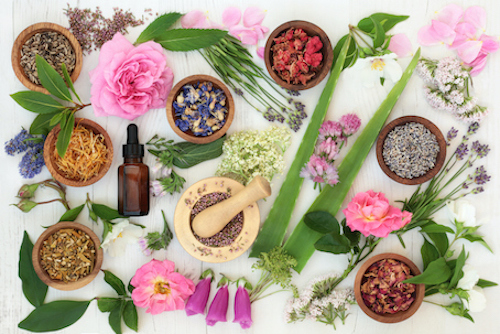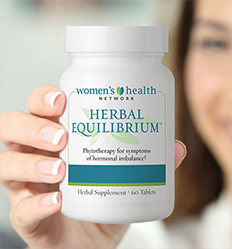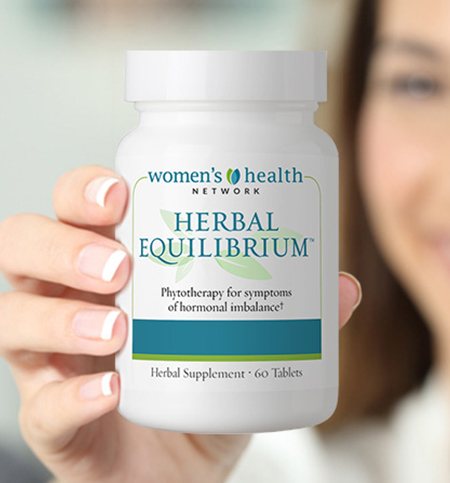By Dr. Mary James, ND
Women experiencing hormonal symptoms in menopause and perimenopause often ask us — can plants really help? My hot flashes, fatigue, anxiety and other symptoms are so strong. How can a gentle herb fix that?

Well, first of all, remember that most of our medicines are derived from plants, even chemotherapy drugs. But we’re not just interested in power here, we’re looking for a solution that works with your body. And that’s what’s great about the hormonal effects of plants — a use that we call “phytotherapy” (“phyto” meaning plant).
In menopause, you have a few basic treatment choices. You can get that prescription filled that your doctor may have given you for hormone replacement therapy, or HRT. You’re often expected to take a fixed amount of synthetic hormones that can cause side effects. And once you start taking them, you may end up taking them… for a long time. Your doctor may prescribe bioidentical hormone therapy, which can be helpful, but again can mean long-term medication use.
An alternative option is to use herbal remedies. These herbs generally act two ways in the body:
1. Because of their receptor sites, they can have the same effect as your natural hormones, only milder, and so function more like a gentle, natural HRT.
2. The second way herbs help is to support and normalize your body’s own production of hormones such as estrogen and progesterone. Herbs help to normalize your own body’s hormone production. This is something that conventional hormone replacement therapy in menopause simply can’t do.
You might think about it this way — when you use herbs, you are letting your body drive the car in self-regulating your hormones and bringing them into balance. With hormone replacement therapy, your prescription is in control.
Of course, some percentage of women need HRT. But we recommend you start with the most natural and least invasive approach first, and see if it works for you. Compared to synthetic hormones, herbs are less invasive and generally safe for long-term use.
Here are some examples of how some of my favorite herbs for menopause work in the body:
Red clover and kudzu act like weak estrogens in your body. Because they complement your own, more potent estrogens, they can help even out both the highs and the lows.
When you might still be having the occasional period and your estrogen levels are sometimes very high, one side effect of this kind of hormonal craziness is that your body can’t easily ovulate. When you don’t ovulate, you don’t produce enough progesterone. This creates a situation where you have too much estrogen and too little progesterone to balance it — lots of uncomfortable symptoms can result.
Chastetree berry helps restore your natural ovulation and progesterone production until your body is finally ready to stop cycling altogether. Bringing progesterone levels back in balance will help to offset estrogen dominance and its related symptoms, including hot flashes and low libido.
Any stress in your life? Hormonal changes in menopause can make whatever stress you have feel that much bigger by exacerbating the physical effects of stress on your body. Suddenly you have less energy, more anxiety, mood swings and maybe even depression.
Ashwagandha is one of the best herbs for stress and anxiety. This herb is an adaptogen — another ‘normalizer’ — which makes it a great tonic for the adrenal glands. Ashwagandha can also boost a sluggish thyroid, and it counteracts depression and makes your brain function better, especially for memory issues due to stress.
Black cohosh can also help with mood by boosting your serotonin levels. And it reduces night sweats and hot flashes in many women.
You’ve probably noticed that, unlike most drugs, herbs often work in more ways than one. They also tend to work by supporting your body’s own natural functions.
Keep in mind, though, that herbs work best when you take them regularly over time. Most herbs work by nourishing and rebuilding, which means they need some time to work their magic.
Also keep in mind that supplements are most effective when accompanied by other positive lifestyle choices. So, please, take care of your health in other ways as well, especially a healthy diet, getting to bed at a decent hour and managing that stress level in whatever ways work best for you — in menopause and beyond.
 | See how plant-based medicine can help relieve your most troubling symptoms. Try doctor-formulated Herbal Equilibrium today. |












